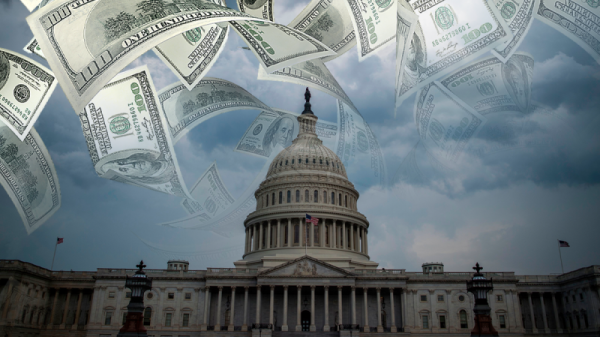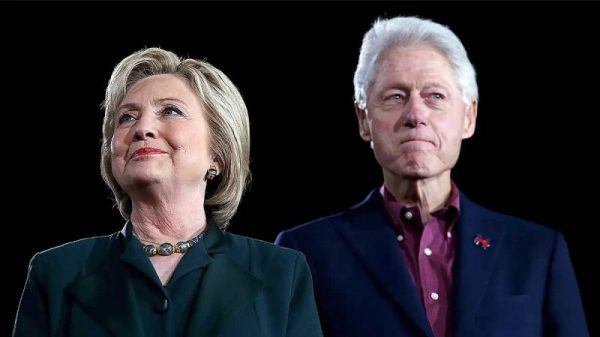Sen. Tim Scott (R-S.C.) is resetting his presidential campaign, shifting staffing and other investments in Iowa after months of stagnation in the contested race.
The campaign announced Monday that Scott, who has polled nationally in the low-single digits but slightly better in the Hawkeye State, where he’s in fifth place in some recent surveys, will move resources to the first-in-the-nation GOP caucus state from New Hampshire, double his staff on the ground in Iowa, open a new West Des Moines headquarters and buy more ads in Iowa.
The reset comes as Scott, who has run on a more aspirational platform than his rivals, has yet to make any major dent in former president Donald Trump’s wide lead or make gains on other contenders vying for second and third place.
Scott campaign manager Jennifer DeCasper said in a statement that Scott is “all in” on Iowa and suggested it offers the best path to success as the campaign attempts to make the case that Scott’s likability, sizable amount of cash on hand and religious values will serve well to change the minds of Iowa’s caucus-going electorate.
“No candidate other than Tim Scott has the resources, the foundation of support, and the message to be successful in the Hawkeye State,” DeCasper said. “We’re all in on Iowa as an important first step on the road to winning the nomination.”
Scott will spend the next five days in Iowa, as part of a stint labeled “The Good News Tour.” And the campaign announced Scott would travel back to Iowa after the third debate and be there every week until the mid-January caucus.
Scott has not yet said if he has qualified to appear on the November debate stage. Campaigns must have 70,000 unique donors and support from at least 4 percent of Republican voters in two national polls. It is unclear from campaign filings if Scott reached the threshold for donors. Campaign spokeswoman Nicole Morales did not respond to a question from The Washington Post about Scott qualifying.
But Scott does have more money on hand than some of his competitors, in part because he entered the race with $22 million from his Senate campaign. At the same time, Scott burned through money at a faster rate than rivals in the third quarter, spending nearly three times as much as he raised over the past three months. A super PAC supporting Scott, Trust in the Mission PAC, told donors last week that it would be canceling fall ad buys, citing Trump’s dominating lead at this point in the race.
The campaign said Monday it has $1.6 million of TV reserved in Iowa.
Scott has attempted to more aggressively contrast himself with Trump in recent weeks. In a call with donors on Thursday, the campaign’s pollster, Erik Iverson, spoke about the factions of the party open to a Trump alternative and DeCasper walked through the history of Scott and Trump’s relationship, emphasizing the conflicts between the men, especially after the deadly white supremacist rally in Charlottesville, according to a person familiar with the call who spoke on the condition of anonymity to discuss strategy.
Campaign leadership also assured donors that there would be movement in October, comparing the current phase of the race to the second or third inning of a baseball game and referring to the previous low polling of previous caucus winners Mike Huckabee, Sen. Ted Cruz (R-Tex.) and former senator Rick Santorum (R-Pa.) at comparable points. (None went on to win the nomination.)
Sen. Tim Scott (R-S.C.) is resetting his presidential campaign, shifting staffing and other investments in Iowa after months of stagnation in the contested race.
The campaign announced Monday that Scott, who has polled nationally in the low-single digits but slightly better in the Hawkeye State, where he’s in fifth place in some recent surveys, will move resources to the first-in-the-nation GOP caucus state from New Hampshire, double his staff on the ground in Iowa, open a new West Des Moines headquarters and buy more ads in Iowa.
The reset comes as Scott, who has run on a more aspirational platform than his rivals, has yet to make any major dent in former president Donald Trump’s wide lead or make gains on other contenders vying for second and third place.
Scott campaign manager Jennifer DeCasper said in a statement that Scott is “all in” on Iowa and suggested it offers the best path to success as the campaign attempts to make the case that Scott’s likability, sizable amount of cash on hand and religious values will serve well to change the minds of Iowa’s caucus-going electorate.
“No candidate other than Tim Scott has the resources, the foundation of support, and the message to be successful in the Hawkeye State,” DeCasper said. “We’re all in on Iowa as an important first step on the road to winning the nomination.”
Scott will spend the next five days in Iowa, as part of a stint labeled “The Good News Tour.” And the campaign announced Scott would travel back to Iowa after the third debate and be there every week until the mid-January caucus.
Scott has not yet said if he has qualified to appear on the November debate stage. Campaigns must have 70,000 unique donors and support from at least 4 percent of Republican voters in two national polls. It is unclear from campaign filings if Scott reached the threshold for donors. Campaign spokeswoman Nicole Morales did not respond to a question from The Washington Post about Scott qualifying.
But Scott does have more money on hand than some of his competitors, in part because he entered the race with $22 million from his Senate campaign. At the same time, Scott burned through money at a faster rate than rivals in the third quarter, spending nearly three times as much as he raised over the past three months. A super PAC supporting Scott, Trust in the Mission PAC, told donors last week that it would be canceling fall ad buys, citing Trump’s dominating lead at this point in the race.
The campaign said Monday it has $1.6 million of TV reserved in Iowa.
Scott has attempted to more aggressively contrast himself with Trump in recent weeks. In a call with donors on Thursday, the campaign’s pollster, Erik Iverson, spoke about the factions of the party open to a Trump alternative and DeCasper walked through the history of Scott and Trump’s relationship, emphasizing the conflicts between the men, especially after the deadly white supremacist rally in Charlottesville, according to a person familiar with the call who spoke on the condition of anonymity to discuss strategy.
Campaign leadership also assured donors that there would be movement in October, comparing the current phase of the race to the second or third inning of a baseball game and referring to the previous low polling of previous caucus winners Mike Huckabee, Sen. Ted Cruz (R-Tex.) and former senator Rick Santorum (R-Pa.) at comparable points. (None went on to win the nomination.)





















